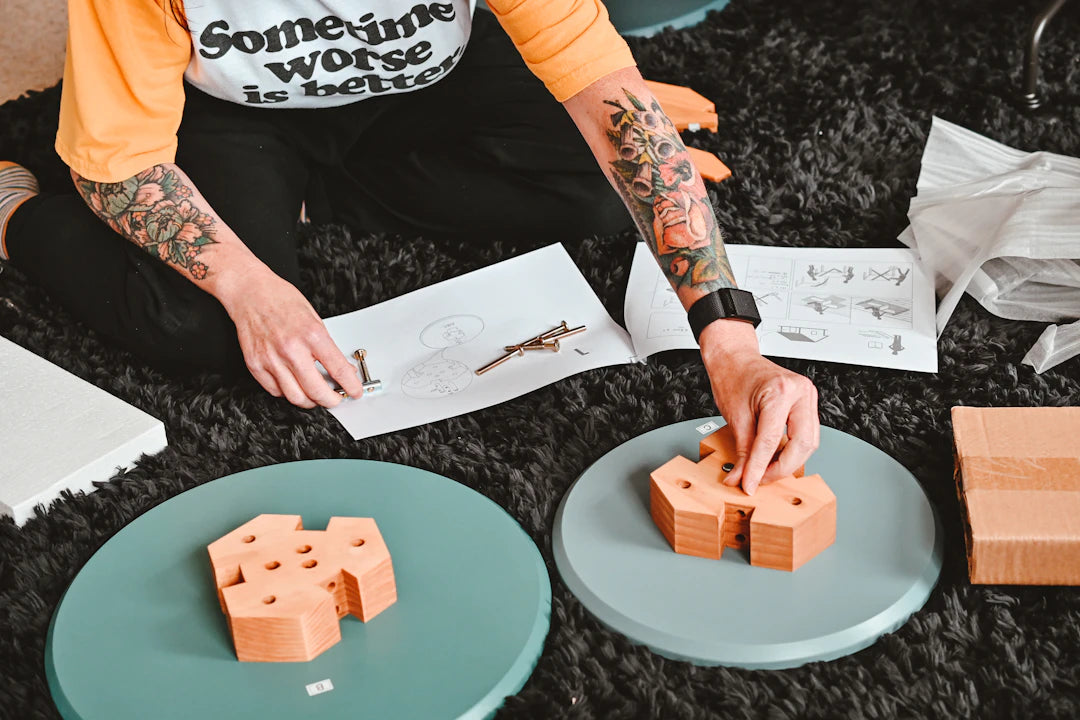Frequently Asked Questions
1. What are guitar pickups?
2. What are the different types of guitar pickups?
3. Why should I consider DIY pickup modifications?
4. What tools do I need for pickup modifications?
5. How can I test my pickup modifications?
When it comes to creating a distinctive sound for your guitar, one of the most effective avenues to explore is DIY pickup modifications. Custom guitar pickups can drastically alter your instrument's tone and functionality, giving you the opportunity to create a sound that truly reflects your musical identity. In this article, we’ll delve into the world of guitar pickups, explore DIY modifications, and guide you on your journey to crafting a sound that is uniquely yours.
Understanding Guitar Pickups
Before undertaking any modifications, it’s important to have a solid understanding of what pickups are and how they function. At their core, pickups are electromagnetic devices that convert the vibration of your guitar strings into an electrical signal, which can then be amplified. Different types of pickups offer varying tonal characteristics, and this is where your customization journey begins.
Types of Guitar Pickups
There are several different types of pickups, each with its signature sound and style:
- Single-Coil Pickups: Known for their bright, clear sound, single-coil pickups are popular among genres like rock, blues, and country.
- Humbucker Pickups: Characterized by their thicker, warmer tone, humbuckers are excellent for high-gain settings and are often used in heavier genres.
- P90 Pickups: These are a middle ground between single-coils and humbuckers, offering a punchy and growly sound.
- Active Pickups: Powered by batteries, active pickups provide an incredibly high output and are often favored in metal and hard rock.
The Importance of Pickup Modifications
Custom guitar pickups can enhance your playing experience, offering sounds you may have never thought possible. Modifying your pickups allows you to fine-tune the tone and responsiveness of your guitar, as well as adapt it to the particular style you wish to play. For instance, if you’ve ever read an Odyssey Icon SH23 HB review, you would notice the complexity and range available in the pickups, showcasing just how much tonal variation can be achieved.
Benefits of DIY Pickup Modifications
Exploring DIY modifications to your pickups comes with a valuable set of benefits:
- Personalization: You can tune your guitar to your own specifications, making it truly your own.
- Cost-effective: Modifying existing pickups can be cheaper than purchasing new ones, especially when you want specific features.
- Creative Freedom: Designing your sound engages the creative side of playing, leading to new musical ideas and growth.
Getting Started with Pickup Modifications
Before diving into specific modifications, ensure you have the proper tools at your disposal. Here’s what you’ll need:
- Screwdriver Set: To remove and install pickups.
- Soldering Iron: For electrically connecting wires.
- Solder: To secure your connections.
- Wire Cutters: To modify wires to the desired length.
- A Multimeter: To test pickup resistance and functionality.
Popular Pickup Modifications You Can Try
1. Adjusting Pickup Height
One of the easiest ways to modify your pickups is by adjusting their height. The distance between the pickups and strings can significantly affect your tone and volume. Here’s how to do it:
- Find the ideal height by experimenting. Play your guitar and adjust the height little by little until you find a sweet spot.
- Generally, single-coil pickups should be set closer to the strings than humbuckers to maintain clarity.
2. Changing Magnetic Poles
The magnetic poles on your pickups can influence the tone by altering the response of each string. You can experiment with raising or lowering individual poles for a more balanced sound. This is commonly done among players looking to refine their tone.
3. Wiring Modifications
Wiring modifications can change how pickups connect to your guitar’s output, affecting the overall sound. Some common wiring modifications include:
- Split Coils: For humbuckers, this allows you to use one coil by itself, mimicking a single-coil sound.
- Coil Tapping: Similar to split coils, but allows you to switch between single and humbucker modes.
- Series and Parallel Wiring: Changing how the pickups are wired can dramatically alter your sound.
Enhancing Your Sound with Pickup Covers
Another aspect of customization is the addition of pickup covers. Aesthetic modifications, such as adding unique covers, can spice up the look of your guitar while potentially affecting tone. Metal covers may produce a sharper tone, while plastic covers often yield a warmer sound. Experimenting with different materials can lead to surprising results!
Research and Experiment
Before making any modifications, do thorough research and watch tutorial videos. Many online communities are dedicated to guitar modifications where you can gain insights from seasoned players. Try to compare various Odyssey Icon SH23 HB review anecdotes and suggestions for unique modification ideas.
Testing Your Modifications
Once you’ve made your modifications, it’s crucial to test your guitar thoroughly. Plug it into an amp and play different genres to see how the modifications have impacted the sound. Listen closely for changes in clarity, sustain, and volume.
Maintaining Your Custom Guitar Pickups
To keep your modifications sounding their best, ensure you maintain your instrument properly. Some upkeep tips include:
- Regularly check the connections to ensure they are tight and free of corrosion.
- Avoid exposing your guitar to extreme temperatures or humidity, which can warp or damage the electronic components.
- Consider applying wax potting to your pickups if you experience unwanted feedback or noise.
The Road to Personalization Continues
Crafting your unique sound through DIY pickup modifications is an exciting and fulfilling journey. Each adjustment you make helps you uncover your tone, contributing to the overall character of your music. As you learn about various techniques and explore what unique modifications work for you, you will shape your guitar's sound into something that reflects your artistic expression.
So gear up, grab those tools, and dive into the world of sound shaping. The journey to creating your personal tone is just beginning, and with each modification, you take a step closer to achieving a sound that is genuinely yours!











